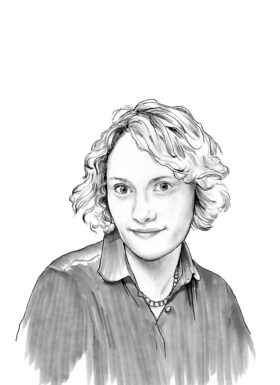-
Ammodo Science
Award for groundbreaking research2024 -
Ammodo Science Award
The Ammodo Science Award for groundbreaking research is intended to stimulate potentially groundbreaking research. Such research is usually the result of team work, and for that reason this Award is for research being carried out by a group of researchers working together, and is intended to recognise the contribution of every member of the group. The Award is presented every two years in four scientific domains: Biomedical Sciences, Humanities, Natural Sciences and Social Sciences.
-
Nomination & Selection
Each edition, the Ammodo Science Award for groundbreaking research includes a cash prize of 1,600,000 euros for each of the science domains Natural Sciences and Biomedical Sciences and a cash prize of 800,000 euros for each of the science domains Humanities and Social Sciences. The rectors of the fourteen Dutch universities affiliated to Universities of The Netherlands (UNL) may nominate a maximum of one research project per scientific domain.
-
Winners
The Ammodo Science Award for groundbreaking research focuses on potentially groundbreaking research and ensures that all researchers involved in the winning project are recognised and rewarded.
Stephanie Wehner
Laureate Natural Sciences 2019

Stephanie Wehner (1977) started working on the Internet at an early age, as a network and security expert, and professional hacker. She studied at and obtained her PhD from the University of Amsterdam and after that she went on to CalTech for a postdoc. From there she moved to Singapore where she worked as an Assistant Professor and later Associate Professor. She is currently Antoni van Leeuwenhoek Professor at QuTech in Delft and leader of the ‘Quantum Internet and Networked Computing Initiative.’
Wehner has published in both Science and Nature, and received a number of large grants, including an European Research Council starting grant and a Netherlands Organisation for Scientific Research (NWO) VIDI. She is also coordinator of the Quantum Internet Alliance in the European Quantum Flagship.
WebsiteResearch focus
Stephanie Wehner studies information and information processing to better understand the laws of nature, and wants to use this knowledge to build quantum technology.
Hacker of the laws of nature
It is an in-joke in Hollywood: if you can’t explain why something happens in your movie, use the term ‘quantum.’ As incorrect as this often is, it does indicate how elusive the topic is. Even Albert Einstein struggled with the idea of the quantum world – because at the quantum level, everything goes just a little bit different.
Be that as it may, it did not deter Stephanie Wehner. She started out as a professional hacker, moved into computer science and is now working in quantum mechanics. To her, hacking is science in its purest form. She uses the properties of information to learn more about the laws of nature, but then also uses those laws to work on new ways of information processing.
One important direction her research is taking leads to the quantum internet. A quantum internet does not work with the classic bits, the ‘zeroes and ones’, but with quantum bits or qubits, that can be both 0 and 1. These qubits can be entangled, which means that even when they are separated they still maintain a close connection with each other. And a couple of entangled qubits cannot be copied, making entanglement an inherently safe connection which cannot be tapped.
In Autumn 2018 Wehner published a plan in Science, detailing what was needed to achieve a quantum internet. Now the challenge is to put the plan into practice: QuTech is working hard to create the first quantum internet, within Delft and the surrounding area.